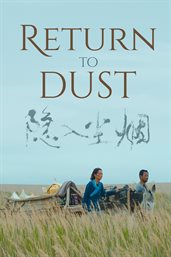Review by Booklist Review
Meyer's first encounter with China was as a Peace Corps worker who violated the rule against dating the Chinese. The woman he married, and who eventually moved with him to the U.S., was from a village called the Wasteland. Several years later, in a bid to learn more about her childhood home, Meyer went back to China to rural Wasteland renting a house and working as an English teacher, trying as much as he could to immerse himself into the fabric of the village. His wife, now a lawyer, joined him occasionally. Wasteland was so named because its prospects at one time had been grim; but a burgeoning rice-farming economy was showing promise, and new roads and cinder-block apartment buildings were being offered in exchange for farmers' land rights. The result is a memoir that combines China's ancient history and a journalistic look at its present and future, viewed through the development of the once sleepy village of Wasteland, in China's northeast frontier of Manchuria.--Bush, Vanessa Copyright 2014 Booklist
From Booklist, Copyright (c) American Library Association. Used with permission.
Review by Publisher's Weekly Review
The Chinese countryside struggles to preserve its soul while edging toward modern capitalism in this vivid snapshot of China's far northeastern region of Manchuria. Journalist Meyer (The Last Days of Old Beijing) spent three years living in his in-laws' village of Wasteland-which, despite the name, turns out to be a lively place. With delightful character sketches and casual but sharp-eyed reporting, his portrait of Wasteland captures the close-knit warmth of rural life-everyone knows everything about Meyer's business, especially the village "aunties" who are forever kibitzing his parenting plans-as well as the hilarious ways that Chinese and American cultures mistranslate each other. Along the way he tours Manchuria's historical sites and stilted museum exhibitions, while recounting its tumultuous past as a battleground fought over by Japan, Russia, and Chinese Nationalists and Communists. In Wasteland, he observes a quieter upheaval as the town is gradually taken over by an agribusiness that wants to move farmers off the land and into apartment complexes, a development that promises advantages-steadier incomes, indoor plumbing instead of frigid outhouses-while threatening to unravel the social fabric. Meyer's entertaining mix of memoir, travelogue, and sociology yields a rich, insightful view of China in transition. Photos. Agent: Georges Borchardt, Georges Borchardt Literary Agency. (Feb.) © Copyright PWxyz, LLC. All rights reserved.
(c) Copyright PWxyz, LLC. All rights reserved
Review by Library Journal Review
Journalist and travel writer Meyer (The Last Days of Old Beijing) turns his eye toward northeastern China, searching for traces of lost history and observing the breakneck pace of rural development in his wife's home village of Wasteland. Located in what was historically called Manchuria, Wasteland is caught up in China's shift away from family farming to a model dominated by large corporations. The author deftly illustrates how the upheaval felt in the village mirrors the historical instability in the region, where rival ethnic, political, and military entities have vied for control for centuries. These accounts are interwoven with reflections on the author's personal connection to the country and his decision to start a family. Meyer's style is familiar; mixing memoir, history, and journalism in an approach reminiscent of Peter Hessler's River Town. Like Hessler, Meyer highlights the frequent contradictions of life in China without resorting to stereotypes or mockery. VERDICT Meyer largely succeeds in his attempt to make the complex history and future of northeastern China accessible to a Western audience. This work will appeal to those interested in travel narratives, Chinese culture and history, and the changing global landscape.-Rebecca Brody, Westfield State Univ., MA (c) Copyright 2015. Library Journals LLC, a wholly owned subsidiary of Media Source, Inc. No redistribution permitted.
(c) Copyright Library Journals LLC, a wholly owned subsidiary of Media Source, Inc. No redistribution permitted.
Review by Kirkus Book Review
A satisfying, elegant personal journey in China's fabled Northeast.A Peace Corps volunteer in China in 1995, Meyer spent subsequent years teaching English in a rapidly changing Beijing, where he wrote his first book, The Last Days of Old Beijing: Life in the Vanishing Backstreets of a City Transformed (2008). Against the usual logic (the Chinese were leaving the land to flock to the cities), the author settled in the remote Northeast, in a town called Wasteland, Manchuria, the hometown of his Chinese wife, Frances. There, working as a middle school teacher while living among Frances' eccentric relatives, Meyer realized that he was interested in exploring China's past. A rice-growing center, Wasteland (founded in 1956) was closer to Vladivostok and Pyongyang than the Great Wall. It was once the heart of the Manchu, who stormed through the country on horseback and seized Beijing in 1644, ruled for 300 years, and added the territory of Tibet, Xinjiang and Inner Mongolia. Eventually, the Manchu mingled with the infiltrating Han Chinese; as a result, today Manchu make up less than 10 percent of the region's 110 million residents. In addition to providing a variety of tender tales of the local folk (e.g., "The Ballad of Auntie Yi"), Meyer inserts profound and troubling observations, such as the official desecration of cultural artifacts in the name of development and the fact that many of the residents first came with families fleeing the famine of the Cultural Revolution era. Throughout, Meyer moves gingerly through Manchurian historythe gradual weakening of the Qing court as China opened to the West; the building of the Trans-Siberian Railroad, bringing geopolitical hostilities; and the conquest of the region by imperial Japan and creation of Manchukuo in 1931yet the author ends in a hopeful fashion: a pregnancy. A work of enormous heart as well as research. Copyright Kirkus Reviews, used with permission.
Copyright (c) Kirkus Reviews, used with permission.


